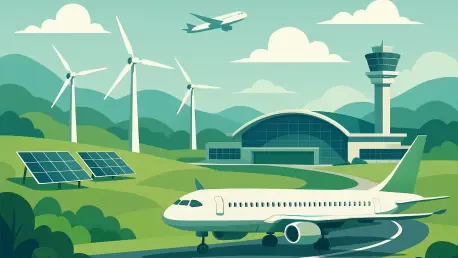I’m thrilled to sit down with Katarina Railko, a renowned expert in hospitality with a deep background in travel and tourism. Katarina has honed her expertise in the industry and is a prominent voice in entertainment and events, often sharing insights at expos and conferences. Today, we’re diving into a critical topic for the aviation sector: sustainability. Our conversation centers on the recently launched Integrated Sustainability Program (ISP) by IATA, exploring how it’s shaping the future of airline operations through environmental, social, and governance (ESG) frameworks. We’ll touch on the program’s innovative modules, its impact on supply chains and community engagement, and why transparency is more important than ever for airlines.
How would you describe the essence of the Integrated Sustainability Program (ISP) and what makes it stand out in the aviation industry?
The ISP is a groundbreaking certification framework designed to help airlines weave sustainability into every facet of their operations. It’s not just about reducing emissions—it encompasses environmental, social, and governance aspects, often referred to as ESG. What sets it apart is its holistic approach; unlike many initiatives that focus solely on environmental impact, ISP provides a comprehensive system with tailored modules for airlines. It builds on the existing Environmental Assessment program, known as IEnvA, and expands into broader areas like procurement and social responsibility, offering a practical roadmap for sustainable decision-making.
Can you walk us through how airlines already certified under IEnvA transition into the ISP framework?
Certainly. Airlines with IEnvA certification have a head start since that program is now fully integrated into ISP’s Environmental Management module. The transition is seamless—they can continue with their existing environmental practices while opting to expand into other ISP modules like sustainable procurement or social responsibility. This flexibility allows them to build on their current achievements without starting from scratch, and it ensures they align with updated global standards like ISO14001:2015.
Why do you think it was crucial for ISP to integrate environmental, social, and governance dimensions into one unified program?
Integrating ESG into a single framework is vital because these areas are deeply interconnected in airline operations. Environmental efforts, like cutting emissions, often tie into social responsibilities, such as ensuring community well-being near airports. Governance, meanwhile, ensures accountability and ethical practices across the board. By addressing all three, ISP creates a balanced approach that not only meets regulatory demands but also builds trust with customers and stakeholders. It’s about showing that sustainability isn’t just a buzzword—it’s a core part of how airlines operate.
Let’s dive into the Environmental Management module. How does it support airlines in addressing challenges like emissions or waste?
This module is a powerhouse for airlines looking to tackle their environmental footprint. It provides a systematic way to assess and manage issues like emissions, waste, water usage, noise, biodiversity, and pollution. Airlines get access to strategies and tools that align with international standards, helping them set clear targets and track progress. For example, they might implement fuel-efficient flight paths to cut emissions or adopt recycling programs to reduce waste. It’s all about turning complex challenges into actionable steps.
The Sustainable Procurement module is a fresh addition to aviation sustainability. What’s the significance of focusing on supply chains in this context?
Supply chains are a huge part of an airline’s overall impact, often overlooked in sustainability discussions. The Sustainable Procurement module, aligned with ISO20400:2017, pushes airlines to evaluate their suppliers on ESG criteria. This means ensuring that everything from catering services to aircraft parts comes from sources that prioritize sustainability. It’s significant because it extends an airline’s influence beyond its own operations, fostering a ripple effect of responsible practices across the industry. However, challenges like aligning diverse suppliers with these standards can be a hurdle, requiring strong collaboration and clear guidelines.
Turning to the Social Responsibility module, how does it play a role in an airline’s everyday operations?
This module, drawing from standards like ISO26000:2010 and UN principles, helps airlines embed social impact into their daily work. It covers human rights due diligence, customer protection, and community engagement. For instance, an airline might refine its policies to better handle passenger complaints or accessibility needs, enhancing trust and satisfaction. It also encourages airlines to connect with local communities—think initiatives like supporting education near airports. It’s about showing that airlines aren’t just businesses; they’re part of a larger social fabric.
The Sustainability Performance module emphasizes tracking and reporting ESG outcomes. Why is this level of transparency so critical for airlines right now?
Transparency is everything in today’s world. Customers, regulators, and investors are demanding clear evidence of sustainability efforts. This module standardizes how airlines monitor and report their ESG performance, ensuring they’re not just making claims but backing them up with data. It helps meet evolving expectations—whether it’s complying with stricter regulations or satisfying eco-conscious travelers. Metrics might include carbon emissions, diversity in hiring, or governance practices, all presented in a way that builds credibility and accountability.
Looking ahead, what is your forecast for the future of sustainability programs like ISP in shaping the aviation industry?
I believe programs like ISP will become the backbone of aviation’s transformation. As the industry pushes toward net-zero by 2050, frameworks that integrate ESG will be non-negotiable. I foresee ISP expanding beyond airlines to include airports, ground handlers, and other stakeholders, creating a unified sustainability ecosystem. With growing regulatory pressure and public awareness, airlines adopting such programs will likely gain a competitive edge, not just in compliance but in reputation. The challenge will be balancing cost with innovation, but the potential for collaboration and shared progress is immense.









